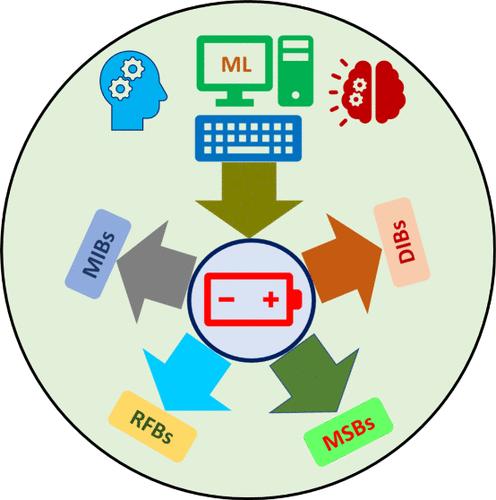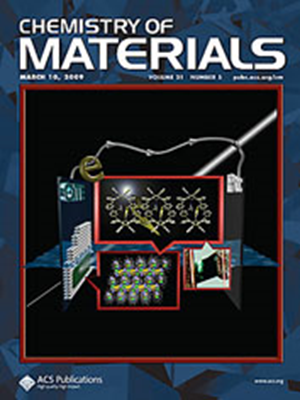利用机器学习推进电池材料设计:挑战与前景
IF 7
2区 材料科学
Q2 CHEMISTRY, PHYSICAL
引用次数: 0
摘要
要进一步利用可再生能源来满足日益增长的能源需求,电池技术的进步不可或缺。机器学习(ML)方法的快速发展推动了各个领域的创新,从根本上重塑了储能研究的格局。这篇全面而权威的论文通过浏览庞大的材料空间,批判性地探讨了人工智能(AI)和 ML 技术在各种电池系统材料设计中的应用。我们强调了人工智能在电池领域的最新进展,描述了现有和即将面临的障碍,并阐明了优化人工智能方法的先决条件。我们还提供了应用先进的 ML 技术优化电池系统的未来方向和潜在研究领域。我们的目标是促进将这些先进的人工智能/ML 工具转让给参与电池设计研究的研究人员,促进对其潜力的全面了解,并涵盖电池研究的多个方面。本文章由计算机程序翻译,如有差异,请以英文原文为准。

Utilizing Machine Learning to Advance Battery Materials Design: Challenges and Prospects
Advancement of batteries is indispensable for further utilization of renewable energy sources to meet the increasing energy demand. The rapid development of machine learning (ML) approaches has propelled innovation across diverse domains, fundamentally reshaping the landscape of energy storage research. This comprehensive and authoritative discussion critically examines the application of artificial intelligence (AI) and ML techniques for the design of materials for various battery systems by navigating a large material space. We emphasize recent progress in the battery field propelled by ML, describe existing and forthcoming hurdles, and elucidate the prerequisites for optimizing ML methodologies. We also provided future directions and potential research areas in the application of advanced ML techniques for the optimization of battery systems. The goal is to facilitate the transfer of these advanced AI/ML tools to researchers involved in battery design research, fostering a comprehensive understanding of their potential and embracing the multifaceted aspects of battery research.
求助全文
通过发布文献求助,成功后即可免费获取论文全文。
去求助
来源期刊

Chemistry of Materials
工程技术-材料科学:综合
CiteScore
14.10
自引率
5.80%
发文量
929
审稿时长
1.5 months
期刊介绍:
The journal Chemistry of Materials focuses on publishing original research at the intersection of materials science and chemistry. The studies published in the journal involve chemistry as a prominent component and explore topics such as the design, synthesis, characterization, processing, understanding, and application of functional or potentially functional materials. The journal covers various areas of interest, including inorganic and organic solid-state chemistry, nanomaterials, biomaterials, thin films and polymers, and composite/hybrid materials. The journal particularly seeks papers that highlight the creation or development of innovative materials with novel optical, electrical, magnetic, catalytic, or mechanical properties. It is essential that manuscripts on these topics have a primary focus on the chemistry of materials and represent a significant advancement compared to prior research. Before external reviews are sought, submitted manuscripts undergo a review process by a minimum of two editors to ensure their appropriateness for the journal and the presence of sufficient evidence of a significant advance that will be of broad interest to the materials chemistry community.
 求助内容:
求助内容: 应助结果提醒方式:
应助结果提醒方式:


